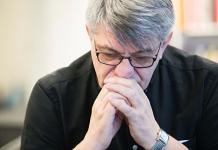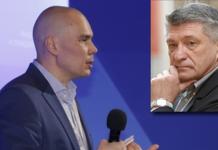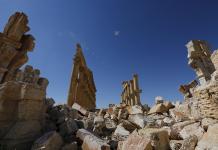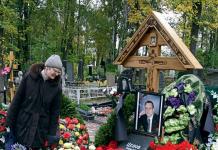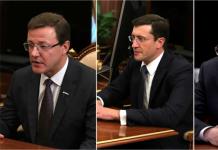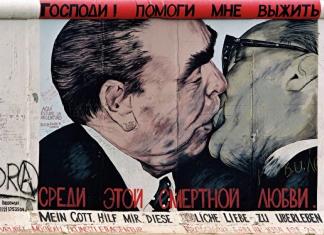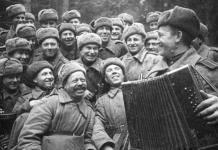19/02/2018
Director Alexander Sokurov gave a long interview to Sofiko Shevardnadze about the nature of power, about Boris Yeltsin and Vladimir Putin. The filmmaker tried to explain why, despite his critical position, the current president of Russia invariably gives him the floor.
“He (Putin - ed.) knows very well that I personally don’t need anything from the country,” Sokurov says on the air of Ekho Moskvy. “That everything I talk about is only related to the fate of the country or the industry of which I am a part. I really remember our conversation when we were one on one and he asked me where I had been lately. And I told him that I was in the Ulyanovsk region and that I had a heavy impression of one place. "What it is?" he says. - "Ulyanovsk plant" Aviastar ", an empty plant where nothing is produced, where unfinished aircraft are." And he listened in detail to all my impressions without interrupting. In general, he is completely different in a one-on-one conversation than in a public field ... Like Boris Nikolayevich, by the way.
According to Sokurov, Putin really listens to people, but is influenced by his environment.
“He listens, he really listens. But, it seems to me that he can be set against those who systematically object to him, especially in public. That is, he can report anything about me. They tell me that the development of the FSB is underway. They are looking for some compromising documents against me, something else. I can't understand why…” adds Sokurov. “I am sure that he himself does not perceive me as some kind of enemy. I'm always given the floor. But meanwhile, it seems to me, we somehow do not fully hear each other. I understand that he may not listen to me or not listen to the end ... ”.
However, the director is sure that it is better to build communication through personal meetings.
“And, I think what is missing, of course, is a direct conversation. This is a conversation in which it is impossible not to interrupt a person. I know that he really doesn't like being interrupted. To me, after talking about Sentsov [at a joint meeting of the Council for Culture and Art and the Council for the Russian Language in December 2016 - Ed. ] made remarks many times how I dared to invade, stop, interrupt the President several times. But at the same time, I did not feel any malicious irritation or vindictiveness on his part. It is very strange. I really sometimes behave abruptly, but only because I am so alarmed by what is happening around me, I am so responsible for it ... Sometimes I just can’t sleep ... Anxiety is not from politics, not from external war, but because from happens to us, to those people who surround me. I know that there are my great compatriots who will never dare to say even a tenth of what I say.
When asked by Shevardnadze what kind of artistic image of Putin Sokurov would make in his potential film about the president, he replied: “A person who stands in front of a very high steep mountain and does not know what will happen if he rises to the top, is there heavier peaks and what to do: storm or equip everything at the foot and with whom. The main thing is with whom. He sees who is next to him, and understands that to storm with them is not to rise. This is what the image would look like. They are very different from Boris Nikolayevich. Yeltsin is a man who stands in the same way, but surrounded by more reliable people on the banks of a very, very wide river, where you can’t see that bank and who is there on the bank. Here are two different images. Equally tragic, of course, and equally sympathetic. I am by nature an artistic person, not a publicist. And I like this medical model, which is probably applicable to cinema or drama: we are hospital employees, some group of wounded and sick is brought to us, and many of them are such scoundrels that it’s scary to touch them. But we must accept them, diagnose them by all means, cure them and return them to society. Not thrown into a pit, not shot, not strangled, but returned to society. And let the people or, there, God judge these criminals. Art has no right to kill criminals. It has no right to kill at all ... ".
Published on 29.03.17 09:13"Nika" 2017: the film "Paradise" by Andrei Konchalovsky became the winner of the award.
The day before, the 30th anniversary ceremony of the national film award "Nika" was held at the Moscow City Council Theater. Andrey Konchalovsky's film "Paradise" won the award in three main categories: "Best Film", "Best Director" and "Best Actress".
The historical drama "Paradise" tells about people whose lives intersected during the Second World War: a Russian émigré Olga, a member of the French Resistance movement, a French collaborator Jules and a high-ranking SS officer. The action of the picture takes place mainly in a German concentration camp.
During the Nika award ceremony, laureates intkbbee awards from the stage called on the authorities to listen to the youth and spoke out in defense of people detained during Sundays and political prisoners. In particular, directors Alexander Sokurov, Alexander Mitta, Alexei Krasovsky and actress Elena Koreneva mentioned this in their speeches.
Sokurov, who received an honorary award in the "Honor and Dignity" nomination, in his speech recalled Oleg Sentsov and pointed out the mistake of the state, which acted familiarly towards young people on March 26. He also drew attention to the harsh actions of law enforcement agencies against girls and women.
"I appeal to the deputies: let's adopt a law prohibiting the arrest and generally touching women and girls participating in mass rallies. If you saw what happened on Sunday, when girls were grabbed by the arms and legs. It was rude. It was violence ", he stated.
Sokurov's speech at the Nika award ceremony. VIDEO
"The state is making a mistake by behaving so familiarly with schoolchildren and students. You cannot start a civil war among schoolchildren and students. None of our politicians wants to hear them. Nobody talks to them. They are afraid to do this - why?" - said the director.
According to Sokurov, he discussed with Vladimir Putin the release from prison of Ukrainian director Oleg Sentsov, who was sentenced to 22 years on charges of terrorism. According to him, the President of Russia promised to "think about this problem."
Winner of "Nika" in the "Discovery of the Year" nomination, creator of the film "Collector" Alexei Krasovsky called on the cinematographic community to influence the fate of the detained participants in the rallies.
"I want to ask you to use your power to change something in their fate," TASS quoted him as saying.
His performance was supported by the artistic director of the Lenkom Theater Mark Zakharov.
“I am happy that Krasovsky spoke about some of our painful and difficult problems in our life,” Zakharov said.
Alexander Mitta, winner of the Nika special prize "For Outstanding Contribution to National Cinematography", also supported Sokurov.
"I share the anxieties and despair, we are all concerned about how our generation grows up, so that it grows up under our cares, and not scarecrows," the director said.
Actress Yelena Koreneva, who won the Best Supporting Actress nomination for her role in the film Her Name was Mumu, spoke from the stage about political prisoners and detainees on March 26, and actress Yulia Aug stressed that this year the award was a real protest .
“I am very sorry that the viewers will not hear the speeches of Krasovsky, Sokurov and Koreneva. I know that they will cut it out. It has not happened for a very long time that Nika was a protest action. And this fact means that the abscess has ripened,” Aug emphasized. .
Director Alexander Sokurov answered questions from Znak.com readers and editors during the Sokurov Days at the Yeltsin Center. Here are some excerpts from that long interview. It can be read in full at Znak.com.
Alexander Sokurov. Photo: Jaromir Romanov
- Don't you think that modern world leaders are shrinking right before your eyes? It is enough to compare the leaders of the leading European states and the United States with those who stood at the helm half a century ago, the comparison will clearly not be in favor of the current ones. What do you think is the reason for the crisis of political elites?
Indeed, degradation is evident. And this is due to the fact that they are not witnesses of large historical processes. Our life, of course, remains difficult, but the current leaders are not in a position to see or anticipate this. The fact that the war with Ukraine is inevitable, I said ten years ago. Many then twisted their fingers at the temple, but for me it was quite obvious. And I wonder why this was not obvious to the Russian and Ukrainian leaders. This suggests that the current political elite are myopic people. That the level of culture, intelligence, and indeed the scale of the individual today is leveled. Look at the current Chancellor of Germany. Well, what is it? Just a sad sight. And the Italian prime minister or the last presidents of France ...<...>
— You lead a public group of urban activists, leading a dialogue with the authorities about protecting old St. Petersburg from destruction. Last year, you wrote a letter to St. Petersburg Governor Poltavchenko asking him not to name the bridge over the Duderhof Canal after Akhmat Kadyrov, but they didn't listen to you.
- The point in this question, unfortunately, is put. And I consider the decision taken only as terrorist activity on the territory of Russia. This threat comes from the Chechen sector. We are dealing with a bomb that could explode at any moment. In my opinion, this is a real military threat. Chechnya is a region of Russia that is not subject to Russia. They have their own army, and only a signal is needed to move these armed people in some direction. It is obvious to me that this is outside the Constitution of my country. And I am sure that a collision is inevitable for a number of reasons. Of course, I hope that the president understands who Ramzan Kadyrov is, and the limits of his capabilities are probably defined. But at the same time, I have no doubt that if he gives instructions to the armed people, then in a number of Russian cities there will be great casualties.
- At one time you wrote a letter to Alexander Khloponin, who was the presidential representative in the North Caucasus District, where you proposed to convene a serious conference of Orthodox and Muslim clergy under the auspices of the state with the raising of political issues ...
And, of course, received no response. Nobody paid any attention to it. In the meantime, we see what is happening. Young people who escaped from the Caucasian cities behave outside of any norms, not only of Russian life, but in general, outside of any moral norms. And law enforcement officers in Moscow are paralyzed by fear of Grozny, because it is there that death sentences are passed. And if a person is sentenced to death in Grozny, no one will be able to defend him.
- Few people dare to speak about it aloud. And it's understandable why. Did you feel this danger?
- Certainly. But let me not be specific. I understand what I do and say and that I will have to answer for it. And the federal government needs to answer the question: is the Constitution of the Russian Federation a law in force on the territory of the entire Russian state? If so, then appropriate action must be taken. However, we see that this document no longer works. Maybe a new constitution is being prepared?
It is with alcoholism that I associate the degradation of the Russian male population. After all, there is no such problem in Muslim regions. Religion there helps to preserve the national way of life. And since the Russians have long been a non-religious people, and our national way of life, closely connected with the rural way of life, was destroyed by the Bolsheviks, now we seem to have no support that would stop this fall into the abyss.
It is important that the government sees. And they thought, looked for ways to hold the country together, until it was too late. Citizens of the Russian Empire, and then the Soviet Union, felt like a single whole, although there was no Internet or television ...<...>
I think that people were held together by the idea of universal equality, certain social guarantees, the idea of internationalism, a common cultural space, affordable free education ...
- I would even say equally accessible quality education, which a person could receive in the capital, and in a small town, and in a remote aul, and in a Ryazan village. In principle, it was close to implementation. And today's education is class-based. So we will never have any Shukshin: in modern conditions, he could not get an education. All my attempts to resist paying for higher education led to the fact that I ruined relations with a large number of officials and rectors ... In general, you answered your own question, formulating everything quite accurately.
- But if these "clamps" do not work today, will Russia stand with the current "clamps"?
- Where I agree with the communists is that the church should be separated from the state. The current state, however, absolutely criminally disposes of relations with religious cults. We are making a gigantic mistake by giving some of the power to the Orthodox Church. They are people, to put it mildly, strange and politically imprudent. As soon as a decision is made to create an Orthodox party, which will become one of the official state parties, the flywheel of the destruction of the country will start. Everything goes to that, and the Russian Orthodox Church collects property so that this party will be rich. But after all, large Muslim parties will appear next, and then the question of the existence of the Russian Federation will be removed from the agenda.
It is not difficult to foresee this: if in a certain territory an Orthodox religious force receives a part of political power as a gift from the state, then, accordingly, in other places the Muslim population will quite rightly demand a part of political power for their religious organizations. Believe me, Muslims will not yield in anything in this matter. And when the interests of Orthodoxy and Islam enter into a political contradiction between themselves, an inter-religious war will begin - the worst thing that can ever happen. In a civil war, you can still come to an agreement, but in a religious war, they fight to the death. Nobody will give in. And everyone will be right in their own way.
Yandex gave Muscovites 2.9 points for self-isolation
01.04 start at 07:45
Andrey Medvedev. About Sokurov and not only...
Russian political observers, according to director Alexander Sokurov, should appear before the Hague Tribunal. "They must be punished. They are just criminals who work for both state and private channels," Sokurov said. Andrey Medvedev, political observer of the All-Russian State Television and Radio Broadcasting Company, discusses the statement of a well-known cultural figure...

Russian political observers, according to the director Alexandra Sokurova must appear before the Hague Tribunal. "They must be punished. They are just criminals who work for both state and private channels," Sokurov said.
Andrey Medvedev, political observer of the All-Russian State Television and Radio Broadcasting Company - discusses the statement of a well-known cultural figure ...
Everything is bad!
This is the leitmotif of the life perception of the domestic intelligentsia. And always. This is the context in which the domestic intellectual liberal "party" has been for the last 200 years, and 150 for sure. In general, the interview of director Sokurov can be characterized as follows. The Russian intellectual went about his favorite thing: he began to talk about what he does not know and does not understand at all! But he talks about this from the position of a prophet, a creator of meaning, a person who carries unconditional and immutable truth.
There are a lot of funny things in the interview: both about Islam and about journalists. According to him, "someday these political observers will appear before the Hague Tribunal as provocateurs who have inflicted enormous damage on the humanitarian space of Russia and the entire Russian people." This is about Ukraine and how they covered events in Ukraine. "These radio and television heralds are engaged in throwing matches during a fire. If I were in power, I would pay special attention to these people who create the prerequisites for international conflicts. They are just criminals who work on both public and private channels" .
The tradition of domestic intellectuals is to sympathize with terrorists
That's who the director Sokurov considers criminals? Journalists. And the presence in Ukraine, where a fire is blazing, about which these journalists periodically talk, private neo-Nazi punitive battalions who fight under Nazi symbols and Nazi slogans, who in terms of their atrocities quite caught up with the guys from the SS divisions "Galicia" and punitive battalions formed from Ukrainian collaborators during the Second World War? This does not cause hostility in Sokurov. They are not needed in The Hague. He somehow does not notice them at all, although even the Ukrainian Themis was forced to notice them. Remember, the case Battalion "Tornado", which was so dispersed that he was forced even in Kiev to arrest him as a result. They committed such atrocities that even the Kiev authorities were forced to bring them to justice. Here they do not bother director Sokurov by the very fact of their existence, The Hague is not about them.
Or director Sentsov, who sat down for terrorism, because he and his friends were preparing terrorist attacks in the Crimea. And yet, he evokes sympathy in Sokurov. Other people who could have been hurt do not evoke sympathy from him. Although in reality this is such a tradition of domestic intellectuals: to sympathize with terrorists.
For understanding, director Sentsov, the Ukrainian authorities wanted to change. That is, from the whole group they needed only Oleg Sentsov. They didn't care about everyone else. And they came out with a cunning offer to change him for someone who could be needed by Moscow. According to some operational data, director O. Sentsov coordinated the activities of several cells on the territory of Crimea. And the fact that he participated in the activities of the Automaidan and, in all likelihood, in the defeat of the Anti-Maidan columns that were returning to Crimea, was simply not closely attended to.
The man was preparing terrorist attacks, and they took him on this. Well, they carried out several comical acts of terrorism, burned, for example, a branch of United Russia. Well, the next one was not comical. IED (improvised explosive device) they have collected.
"Peacekeeping" position of the director
Creator Sokurov says: "We must have a categorical condition - not to fight with our neighbors. I would introduce the principle of mandatory peaceful coexistence with all countries with which we have common borders into the Constitution. Even if we were attacked, we must find the strength not to use the army, not invade other people's territory. You can quarrel with your neighbors, but you can't fight." It is a pity that the Ministry of Defense did not know about such outstanding peacekeeping abilities of Sokurov in 2008, when the Georgian army attacked Russian peacekeepers in South Ossetia and simply killed both peacekeepers and civilians in Tskhinvali. If we had known then about such principles of the director Sokurov, there would have been no need to send troops there. Sokurov should have been sent to South Ossetia. He would have come out and, probably, agreed with the Georgian military. Right there, on the spot. If I had found the strength not to use the army, I would have been able to. Not? It seems to me that a word spoken by a person should find practical application.
A. Sokurov about Russia's turn to the East
Director Sokurov called Russia's current turn to the East "just stupidity." According to him, "how many stupid things have been done by the Russian state, which still cannot really be created." That is, the thousand-year history of the Russian state does not lead Sokurov to think that the state was created, that it took shape.
The state is, first of all, traditions and experience, time-tested and confirmed by national consensus. Apparently, we have no traditions, no time-tested experience. However, other more serious historians believe that Russia has its own historical experience, which is very difficult and complex, but, nevertheless, gives Russia a special place in the world and special prospects.
Interestingly, the Russian liberal intelligentsia, every time Russia made an ideological and political turn to the East, showed simply incredible indignation. When Russia began to annex Turkestan, it is clear that there was no economic logic in this, but there was political logic in it. If Russian troops had not appeared there, British military and British military bases would have appeared there at a distance of two day's march from Orenburg. And the entire liberal community then said that we absolutely do not need this, a waste of time and money. When Nicholas II at the beginning of the 20th century made a turn to the East and began to actively invest in the Far East and China, when he did not agree, together with the European powers, to organize the forcible division of China into occupation zones, he actually saved China as a single state, then the liberal public terribly condemned. But then there was a whole economic program: the construction of a railway to the Far East, and the construction of new ports, and investments in China. But all this caused terrible indignation among the Moscow oligarchy, Moscow bankers, because then the economic center of gravity could shift from Moscow to Kazan, which would become a transit point through which goods would go to China and Asia, new economic ties would be established. This economic turn to the East was terribly condemned. And as a result, as a result of intrigues, it was slowed down, and, in general, Russia was drawn into the military alliance of the Entente (with England and France) and further into the First World War.
Russia is the successor of the Byzantine civilization
When Sokurov says that Russia is civilizationally more connected with Europe, I again have a question. Religion, state traditions, cultural traditions and traditions of writing, Russia received not only from Europe, but from the Byzantine Empire, which in its purest form was not Europe. Yes, this is the Eastern Roman Empire, but Byzantium was never Europe either geographically or ideologically. This is what allowed one or the other Pope to declare crusades against Orthodox schismatics. And this allowed the crusaders to completely calmly rob Constantinople and kill Orthodox Christian residents of Constantinople.
Russia just received all its civilizational traditions from Byzantium. Including the lack of colonial thinking. Russia never had colonies, but the West did. Because in the Catholic and especially in the Protestant consciousness there are those to whom it is given, and there are those to whom it is not given.
A. Sokurov said that the church in Russia should be separated from the state and that, as soon as a decision is made to create an Orthodox party, the flywheel of the destruction of the country will start. And if an Orthodox party is created, then rival Muslims will immediately join the race. And then inside Russia there can be a religious war not for life, but for death.
A. Medvedev: It seems to me that Sokurov is just writing some kind of script for his new, yet another wonderful film, which, as always, no one will watch, which will receive an award at some festival and which will be filmed, as always, with state money, so that then director Sokurov could criticize the state.
In general, however, I wonder if there is such a person who got up straight and went to watch Sokurov's films in the cinema? Sokurov's films are predominantly feature films. It is believed that this is a special, author's movie, not for any cattle like political observers, for whom The Hague is crying, but for decent people. I have a question: among decent people with good faces, are there many who just sat down and watched Sokurov's movie from beginning to end? I'm not talking about film critics, I'm talking about ordinary people.
Cinema about European values
In the last movie A. Sokurov "La Francophonie" the beginning of the Second World War and the personal history of the director of the Louvre, who defended the national collection of this museum when the fascist invaders invaded, are shown.
A. Medvedev: Let's assume that the fascist invaders did not invade France much. And there was no need to defend anything. In the entire French Resistance, fewer people fought with fried liver and young Beaujolais than served the French on the side of the Nazis in the Vichy army and fought on the Eastern Front. It turns out that Sokurov is interested in filming not about, say, how the Hermitage collection was saved in starving, dying Leningrad, or about the employees of the orphanage, who one after another were dying of hunger, but they did not steal a piece of bread from the children. He is interested in European values.
What was there to save, sorry? Have you seen the newsreel footage of the Germans entering Paris or the Germans being in Paris? The Germans from the Eastern Front went to France as an encouragement to rest and heal their wounds, take a walk, hang out with the girls. What had to be saved from whom? You know, this is some kind of distorted perception of life.
Understand and forgive?
It's like with the terrorist Sentsov. Again, this is very traditional for domestic liberals. Vaughn Sokurov says to forgive Sentsov, because he did nothing wrong. In the same way, when Alexander II was killed, the entire domestic liberal intellectual community wrote to Alexander III that he should forgive the assassin, forgive the Narodnaya Volya, that they should not be hanged. How intellectuals like to talk about nothing in general.
To me, there is no difference. Whether Sentsov, whether Basaev, whether Kibalchich, whether Stepnyak-Kravchinsky, whether Boris Savenkov. These are all the same people. These are terrorists, murderers who have been destroying and are trying to destroy my country.
However, the Russian practice of combating terrorism does not carry a special grain and content. For example, in the UK, a teenager who wrote a tweet in support of ISIS was given two full years. The boy is 15 years old, he joked, wrote a tweet in support of ISIS, he gathered a group of some Mujahideen brothers, and a couple, as they say. In the West, in general, for stories with virtual terrorism on the Web, with the support of terrorists there, with the creation of groups, people are imprisoned all the time and given full terms. Two, three years, five years. For tweets, for Facebook posts.
Resentment
We are all discussing Sokurov's interview. And I understand what the problem is with Sokurov. He says that Putin has his own cinematic biographer, Nikita Mikhalkov. This is how he spoke. All because of resentment. I would like to be a cinematic biographer myself. And he says he knows "many directors who would like to become biographers." Although the president himself does not need it. There is some resentment in the creator.
Sokurov is not only dissatisfied with a conditionally degrading Russia, but he also says the same thing about European leaders: that they are all degenerates, that they are all completely unrespectable. And in general, it’s not clear who they let in. Merkel is a sad sight.
About the wrong profession
And in the end, he says that "it seems to him that he chose the wrong profession, he did not fully realize himself in the cinema, what can I say now." Fine! A man lived his life, made films for state money, a film that no one really needed, and then he says: hell, Putin has a different biographer, but I didn’t fully realize myself in cinema.
The first and last paragraphs of Sokurov's interview are the most important. Everything between them is the grumbling of a frustrated, upset person.
I look at Western creators, I look at Riddley Scott, for example. He makes a wonderful, very good movie. I'm looking at Steven Spielberg. Talk to them frankly, they will probably say that they didn’t shoot something either. But they are just commercially successful guys. And I am sure that you will never hear such whining from them. Do they make bad movies? No. Does their cinema concern some subtle matters, does it cling to the strings of the soul? Certainly. Do they have bad films? No. Commercially successful? Yes. That is, somehow people all harmoniously combine.
Or take the movie Schindler's List. Absolutely commercially successful project. But is he important? Important. About people? About people. About a feat? About a feat. Does it give you a chance to think? Gives. And there are many such examples. After all, not only militants are filmed in the West. "Schindler's List" made 15 times more money than it cost, which cannot be said about any of Sokurov's films. Maybe it's just that the person has chosen the right profession?
The world-famous director Alexander Sokurov never hides his civil and political views, even if they ask for it. Because of this, he lost many useful acquaintances and made enemies. Alexander Nikolayevich answered questions from readers and the editors of Znak.com during the Sokurov Days at the Yeltsin Center. We talked about Putin and Ramzan Kadyrov, Orthodoxy and Islam, art and censorship.
"Putin has his own cinematic biographer - Nikita"
At the festival "Days of Sokurov" at the Yeltsin Center, your film about Boris Yeltsin "An Example of Intonation" was shown. Can you express Yeltsin's intonation in a few words? After all, you communicated, you were connected by friendly relations.
If I could put it in a few words, I probably would not have made the film. I have many intonations associated with Boris Nikolaevich. And what I have shown is clearly not enough. I've only scratched the surface of this topic. Besides, I wasn't the only one filming it. In Moscow, he actively made contact with other directors and journalists, who seemed to him and Naina Iosifovna more simple and accessible. I was too abstruse for him. However, with me he always had an intonation of understanding, patience, nobility, respect, and even some gentleness. But this is my personal, private feeling, because he was not quite like that, because he was engaged in hard work.
- You have repeatedly and quite frankly, by your own admission, talked face to face with the current president. After these meetings, did you have an understanding of what kind of “intonation” Putin has? Would you be interested in making a film about him?
- Vladimir Putin has his own cinematic biographer - Nikita. He has already made films about him. In general, thank God, this place is occupied. Although I know many directors who would like to join this line, the president himself simply does not need it.
- You said that in private conversations he appears different than in public space ...
I assure you that even Zhirinovsky in the public space appears in one form, but in personal communication he is completely different. And Boris Nikolayevich was different. Sometimes I was surprised to see him on TV. I didn't recognize him, he was so different. In general, any large-scale personality in chamber communication looks different: arrogance, the desire to win a special place in the historical or cultural space is gone. In one-on-one communication, it is always other people. Much to our regret.
Don't you think that modern world leaders are shrinking right before your eyes? It is enough to compare the leaders of the leading European states and the United States with those who stood at the helm half a century ago, the comparison will clearly not be in favor of the current ones. What do you think is the reason for the crisis of political elites?
Indeed, there is degradation. And this is due to the fact that they are not witnesses of large historical processes. Our life, of course, remains difficult, but the current leaders are not in a position to see or anticipate this. The fact that the war with Ukraine is inevitable, I said ten years ago. Many then twisted their fingers at the temple, but for me it was quite obvious. And I wonder why this was not obvious to the Russian and Ukrainian leaders. This suggests that the current political elite are myopic people. That the level of culture, intelligence, and indeed the scale of the individual today is leveled. Look at the current Chancellor of Germany. Well, what is it? Just a sad sight. And the Italian prime minister or the last presidents of France ...
Since you foresaw the Ukrainian events, let me ask you: do you think a peaceful exit is still possible? And then, if you listen to our political observers, the point of no return has already been passed ...
I hope that someday these political observers will appear before the Hague Tribunal as provocateurs who have inflicted enormous damage on the humanitarian space of Russia and the entire Russian people. These radio and television announcers are busy throwing matches around during a fire. If I were in power, I would pay special attention to these people who create the preconditions for international conflicts. They must be punished. These are just criminals who work for both public and private channels. And there, and there is no responsibility for such behavior. If the political vector changes, all these commentators will instantly rebuild. We saw this well in the example of the conflict with Turkey. They shouted the loudest about the killers of Russian pilots, but as soon as they were told that Turkey had ceased to be enemy No. 1, they immediately changed their rhetoric to the opposite. It's so vulgar and vulgar. They are worse than women who sell themselves.
- Women with reduced social responsibility, as they say now.
Yes, I mean prostitutes. But when a woman gives herself to a man, there is at least some naturalness in this, and there is nothing natural and organic in the behavior of these commentators.
Russia had an open military conflict with Georgia. However, Russian tourists visit Georgia with pleasure and do not face aggression against them. How long should it take to be able to plan a vacation in Kiev?
– Indeed, I recently visited Georgia and met nothing but cordiality and hospitality there. And in the case of Ukraine, this will not happen soon. Mutual contradictions and resentment are too strong. The fact is that the Russians are somehow sure that they are one people with the Ukrainians, and this is the deepest delusion. Ukrainians have long dreamed of breaking away from Russian influence and living away from us, to stop being a shadow of Russia. Soviet practice brought our peoples closer together, but still we are just neighbors. We don't live in the same apartment.
Imagine that you have neighbors and you suddenly start declaring them to be your brother and sister. “For what reason? they say. We're just neighbors! - "Not! We live on the same landing, we are already relatives!” But neighborhood does not imply that we should change husbands, wives or children.
The Ukrainian people have their own historical path - extremely difficult, sometimes even humiliating. Their history is always the subject of outside interference, when someone constantly divides your country, forcibly attaches it to its culture. The hard life of the Ukrainian people, hard. And here also the mind of Ukrainian politics is clearly not enough. At a difficult historical moment, the people did not put forward large-scale politicians who could delicately get out of difficult confrontational circumstances. Carefully separate the "Siamese twins", which have become Russia and Ukraine, fused economies and national characteristics. But there were no politicians who, even taking into account the accumulated irritation towards the Russians and the pressure of the nationalists, would steadily and delicately carry out all the processes. This means that these institutions of power have not matured. Indeed, in order to build relationships with such a large and complex neighbor as Russia, a wise political elite is needed. Unfortunately, it is not yet available in Ukraine. Because, unlike Georgia, Ukrainians have no experience of statehood and public administration.
And besides, we are still very different from Georgians - we have a different alphabet, a completely different culture, traditions, language, temperament, and everything is different with us. And with Ukraine, of course, there is a dangerous appearance of commonality. But this is only an appearance, and when I was often in Ukraine, I saw a powerful energy of rejection and a desire for independence from Russia. The closer the nations, the harder their relationship. You know yourself: the most painful conflicts occur precisely between relatives.
That is why you proposed at the constitutional level to consolidate the impossibility of hostilities with neighboring countries?
We must have a categorical condition: not to fight with our neighbors. This applies to the Baltic States, and Ukraine, and Kazakhstan. I would introduce into the Constitution the principle of mandatory peaceful coexistence with all countries with which we have common borders. Even if we are attacked, we must find the strength not to use the army, not to invade foreign territory. You can quarrel with your neighbors, but you cannot fight.
But after all, countries all over the world, if they fought with someone, then more often it was with their neighbors. Germany repeatedly fought with France, and in the history of relations between France and England, there was even a hundred-year war. And nothing, somehow find a common language.
Let's not forget that Germany was never part of France, and France was part of England, although they fought all the time on a territorial basis. Of course, territorial claims always exist. The same Italy really dreamed of getting part of the French lands from Hitler. But no one has ever been part of each other, as in the Soviet Union. In Europe, there is only one exception in this regard - the Austro-Hungarian Empire.
"We are dealing with a bomb that could explode at any moment"
Alexander Nikolayevich, you have always been aloof from political life. They said that not a single party even once approached you with a proposal to enter its election list. And suddenly, in the parliamentary elections in September last year, you headed the list of the Yabloko party in St. Petersburg, while remaining non-partisan. Why did this happen right now?
I've run out of patience. Of all the parties or groups professionally involved in politics, only Yabloko is engaged in city protection activities in St. Petersburg. It was thanks to Yabloko that I myself understood a lot in city protection work (“Sokurov’s group is engaged in the protection of historical St. Petersburg - ed.). They have always used professional tools. For example, they organized big lawsuits against Gazprom, which the St. Petersburg city protection movement did not dare to do. They helped us, and as a result, almost all the courts were won. And then, there are people to whom I treat with respect. Although, of course, I had no illusions. I understood that this was not an option. But my position was: stop sitting in the kitchen - you need to show your position and support those who think the same way. Of course, I made my life difficult, but I do not regret it. You have to pay for everything. Including for such political behavior.
You head a public group of urban activists, leading a dialogue with the authorities on protecting old St. Petersburg from destruction. Last year, you wrote a letter to St. Petersburg Governor Poltavchenko asking him not to name the bridge over the Duderhof Canal after Akhmat Kadyrov, but they didn't listen to you.
The point in this question, unfortunately, is put. And I consider the decision taken only as terrorist activity on the territory of Russia. This threat comes from the Chechen sector. We are dealing with a bomb that could explode at any moment. In my opinion, this is a real military threat. Chechnya is a region of Russia that is not subject to Russia. They have their own army, and only a signal is needed to move these armed people in some direction. It is obvious to me that this is outside the Constitution of my country. And I am sure that a collision is inevitable for a number of reasons.
Of course, I hope that the president understands who Ramzan Kadyrov is, and the limits of his capabilities are probably defined. But at the same time, I have no doubt that if he gives instructions to the armed people, then in a number of Russian cities there will be great casualties.
At one time, you wrote a letter to Alexander Khloponin, who was the presidential representative in the North Caucasus District, where you proposed to convene a serious conference of Orthodox and Muslim clergy under the auspices of the state with the formulation of political issues ...
And, of course, he didn't get any response. Nobody paid any attention to it. In the meantime, we see what is happening. Young people who escaped from the Caucasian cities behave outside of any norms, not only of Russian life, but in general, outside of any moral norms. And law enforcement officers in Moscow are paralyzed by fear of Grozny, because it is there that death sentences are passed. And if a person is sentenced to death in Grozny, no one will be able to defend him.
- Few people dare to speak about it aloud. And it's understandable why. Did you feel this danger?
Certainly. But let me not be specific. I understand what I do and say and that I will have to answer for it. And the federal government needs to answer the question: is the Constitution of the Russian Federation a law in force on the territory of the entire Russian state? If so, then appropriate action must be taken. However, we see that this document no longer works. Maybe a new constitution is being prepared? There is even an assumption who is ready to head the Constitutional Commission - this is one of the most odious and aggressive women in Russian politics.
- Irina Yarovaya?
Yes. Women generally have no luck in Russian politics. I guess they shouldn't be allowed in? For some reason, as soon as our beautiful women break into the political elite, they behave there more aggressively than men. The most hard-hearted parliamentarians in Europe are precisely our women deputies.
- How do you explain it?
One word can't explain it. The fact is that the role of men in Russia has long been leveled. This can be seen both in the role of fathers in families, and because of how our boys develop in schools. I think it's time to return to separate education - separately for boys and girls.
- And the whole XX century was spent in the struggle for the emancipation of women.
But if women want equal rights, then let them be taken with equal responsibility. And then after all, in our case, until now, in court proceedings, the child always remains with the mother, the fathers in this struggle do not have a single chance. Then the husband must also leave housing, and let him live as he knows. If we are equal on paper, then so be it in everyday practice.
However, all these are details, and most importantly - the psychophysical surrender of positions of the entire male part of the population. And it starts from school. And if you ask what part of the male population in Russia is the weakest, without hesitation, I will answer - our military. This is the most pampered category of men. Even officers of the special services with great difficulty psychologically adapt to new living conditions - the military is so accustomed to comfort.
A rather unexpected statement from the son of a military man who spent all his childhood in military camps. Did they already start noticing something like that?
My father was still a front-line soldier, but that generation had a different problem - everyone drank. It was the scourge of military camps. They drank at home, and drunk people often appeared at work. Of course, there were garrisons that did not cross certain borders, but to a large extent this concerned everyone ... Drunkenness in general is a huge problem for our country. I was struck by the scope of this phenomenon when I was still a student in Gorky, and when I was already studying in Moscow, entire faculties there were in a semi-alcoholic state. In VGIK, they drank simply unbelievably, sometimes the forms acquired just some kind of wild proportions.
It is with alcoholism that I associate the degradation of the Russian male population. After all, there is no such problem in Muslim regions. Religion there helps to preserve the national way of life. And since the Russians have long been a non-religious people, and our national way of life, closely connected with the rural way of life, was destroyed by the Bolsheviks, now we seem to have no support that would stop this fall into the abyss.

“A gigantic mistake is to give part of the power to the Orthodox Church”
– Alexander Nikolayevich, you once said on Ekho Moskvy: “Our vast country is torn apart. There is no common energy. The idea of federalism has largely outlived itself. We need to change the federal principle.” Which one?
And what do you yourself think about this?
In the Urals, there has already been an attempt to change the federal principle by creating the Ural Republic in the first half of the 1990s ...
I remember very well Yeltsin's reaction, he spoke on the phone with Rossel several times about this only in my presence. AND?..
- Nevertheless, this idea had enough supporters.
Both in Ufa and Irkutsk, I also met supporters of such federalism. And even today this idea is alive. For example, in Kazan they are about to make a decision to change the Cyrillic alphabet to the Latin alphabet, which will finally tear us apart. This is happening all over the country. I see it.
It is important that the government sees. And they thought, looked for ways to hold the country together, until it was too late. Citizens of the Russian Empire, and then the Soviet Union, felt like a single whole, although there was no Internet or television ...
– How would you answer this question?
Well, I can only answer for what I personally remember. I think that people were held together by the idea of universal equality, certain social guarantees, the idea of internationalism, a common cultural space, affordable free education ...
I would even say equally accessible quality education, which a person could receive in the capital, and in a small town, and in a remote village, and in a Ryazan village. In principle, it was close to implementation. And today's education is social class. So we will never have any Shukshin: in modern conditions, he could not get an education. All my attempts to resist paying for higher education led to the fact that I ruined relations with a large number of officials and rectors ... In general, you answered your own question, formulating everything quite accurately.
- But if these "clamps" do not work today, will Russia withstand the current "clamps"?
Where I agree with the communists is that the church should be separated from the state. The current state, however, absolutely criminally disposes of relations with religious cults. We are making a gigantic mistake by giving some of the power to the Orthodox Church. They are people, to put it mildly, strange and politically imprudent.
As soon as a decision is made to create an Orthodox party, which will become one of the official state parties, the flywheel of the destruction of the country will start. Everything goes to that, and the Russian Orthodox Church collects property so that this party will be rich. But after all, large Muslim parties will appear next, and then the question of the existence of the Russian Federation will be removed from the agenda.
It is not difficult to foresee this: if in a certain territory an Orthodox religious force receives a part of political power as a gift from the state, then, accordingly, in other places the Muslim population will quite rightly demand a part of political power for their religious organizations. Believe me, Muslims will not yield in anything in this matter. And when the interests of Orthodoxy and Islam enter into a political contradiction between themselves, an inter-religious war will begin - the worst thing that can ever happen. In a civil war, you can still come to an agreement, but in a religious war, they fight to the death. Nobody will give in. And everyone will be right in their own way.
In one interview you said: “We are strangers in the European space. Aliens, because they are big - in terms of the size of the country, in terms of the scale and unpredictability of ideas. And in another you exclaim: “Aren't Russians Europeans? Didn't Europe raise us?"
There is no contradiction here. In one case, I spoke about culture, in the other, about ways of behaving. But, of course, Russia is civilizationally more connected with Europe.
- And how then to perceive the current turn to the East?
It's just stupid, that's all. How many stupid things have been done by the Russian state, which still cannot really be created? We are either changing the social system, or we are at war with our neighbors, or we are ignited by some crazy ideas ... And the state is, first of all, a tradition, an experience that has been tested by time and confirmed by national consensus. We can't find agreement even in small things.
Here in Yekaterinburg, they are going to build a temple on the city pond, although part of the society is against it. But it would be nice to see how such issues are resolved in Germany. There, if even a small part of the population is against it, the decision is postponed. Thus, they protect themselves from hasty steps. The Russian state has always lacked rationality and balance, and it still lacks it today.
“Our Muslims are silent and waiting for where it will break out and which side to take”
Alexander Nikolaevich, you say that it is necessary to establish strict boundaries in relations between power and religion, but, on the other hand, you liked Iran, although this state can hardly be called secular…
Iranians are Shiites, and this is a very special branch of Islam. In my experience, it is much softer. And everything we are told about the Iranian regime is not entirely true. I talked there with different people and will go there again soon. I think that it is necessary to study the Iranian experience. They found themselves in complete isolation, but did not degrade, but, on the contrary, proved that everything is possible to develop within the framework of one self-sufficient nation - the economy, the military and chemical industries, agriculture, hydrocarbon production and scientific research ... They even shoot films several times more than Russia. And very good ones.
In general, this trip prompted me to think a lot about the development and strength of the Muslim world. It needs serious attention. He is energetic and no longer ready to stay within his space. We must understand that it will cross borders and expand.
This is already actively happening. And you are sounding the alarm, saying that in no case should a mixture of cultures be allowed. But this thesis contradicts the current official European values aimed at multiculturalism, open borders, political correctness.
Europe today is ruined by the fear of admitting that the national is superior to the international. I call it an infection. Just got an infection in the body, and he fell ill. In order for the Christian and Muslim worlds to exist in accord and harmony, it is necessary to draw a clear boundary through which neither side can cross. We must not allow the mixing of cultures. This cannot happen without conflict, because culture is a code, a worldview. And the second rule is not to violate the norms of the root people. There should be modesty of the guest, but as a rule, it is not. It cannot be said that Europe will disappear if mosques appear everywhere. But culture, without any doubt, will perish.
Europeans forget that civilization must be protected, this combination of national and Christian norms must be preserved. The European world has accumulated a vast experience of socialization, various political compromises and political practices. And the ability of people to quality work. After all, the main thing that attracts Arabs and Africans in Europe is that you can come to the ready. For some reason, they do not want to fight for the creation of their quality states. They will not do this, but they want to go where something has already been done. But since they do not have the skills of assimilation, they do not have the habit of respecting other cultural and religious principles, then, naturally, the current situation in Europe will lead to major conflicts and wars on the territory of European countries.
In general, we need a distance, a noble distance between peoples. Or under the European culture, you can draw a line and prepare for a decisive modification of the entire European way of life. Either we must resist, or we must agree that we will lose.
- And how to resist if you yourself say that you are increasingly confronted with censorship in the West?
Unfortunately it's true. Today in the West people are much more dependent on the government than 5-7 years ago. More than once, European journalists have confessed to me that editors do not always allow what they have written to be published. My interviews there are now censored, and the TV channels have often turned down topics that I would like to discuss. In Europe, there is a degradation of democratic traditions.
In one interview you said: “Napoleon was considered a murderer, not shaking hands, and now he is almost a French national hero. Even the brand - cognac, cologne ... And the same thing will happen with Hitler - rationality will win over morality. Will humanity forget everything that Hitler did?
Within the boundaries of 15-20 years, everything will begin to change dramatically in assessments. But if you ask what my conviction is based on, I will not answer. I just intuitively feel. This is my perception of the pace at which modern evaluation categories are changing. Well, who of the representatives of my generation could imagine 30 years ago that Nazi youth organizations would exist in St. Petersburg? It seemed to us unrealistic under any circumstances. Especially in Leningrad, where witnesses of the Blockade, participants in the Great Patriotic War, are still alive. Nevertheless, they are. And not the heirs of Russian nationalism, but the followers of German fascism, who accept its entire system and ideology.
- But our society still considers them marginal ...
So far this is true, but, unfortunately, the boundaries between concepts are very quickly erased, and the ground has been prepared for this.
In Europe, for example, the topic of the Russian threat is popular today. Does this hurt you as a Russian citizen? Or do you think that the West's fears are justified?
Recently I staged a performance in Italy and, of course, I talked a lot with the local intelligentsia. Among them there is a certain fear of the invasion of the Russian army into the territory of Europe. I encounter these fears even more often in the Baltics. I tell the Balts all the time: don't be afraid, it won't happen. It's just that the Baltics and Poland need to form an association of neutral states - this is an ideal way out for them. After all, when you do not have NATO bases on your territory, then Russia will not need to send missiles in your direction. Be smart: don't plant raspberries near a bear's den.
In general, it is time for Europe to understand that there is a much more dangerous adversary than Russia - this is the Muslim revolution. After all, why is it so difficult to deal with ISIS - because it is not just a terrorist organization, but a revolutionary ideological movement of the Muslim world. It can arise anywhere, like Bolshevism. After all, no matter how Europe pressed, it could not suppress the Bolshevik rebellion in Russia. And after all, there was also an ideology - to spread Bolshevism throughout the world: Lenin and his followers dreamed of organizing revolutions in Europe. ISIS is guided by similar principles: Christianity has outlived itself, decayed, let's send Christian civilization to the dustbin of history and replace it with a new order - Muslim-political. And since the idea cannot be defeated by missiles, fighting ISIS without entering into negotiations with them as a system means dooming yourself to defeat.
- This is how the principle sounds: "do not enter into negotiations with terrorists."
So it's outdated. Now we need to learn how to deal with them. And this requires wisdom. Can you see why our Muslims are watching all this with such restraint? They are silent and waiting for where it will flare up and which side to take.

"Don't think that cinema is harmless, it's a delusion"
Back in 2002, you told the Izvestia newspaper: “American film aggression is killing the feeling and thinking viewer. Russia is defeated in this sense.” Has anything changed in 15 years? How do you evaluate the completed Year of Russian Cinema?
Nothing changed. If the Year of Culture ended with the closure of libraries, then in the Year of Cinema we will lose all documentary film studios in Siberia, the Urals, the Far East, the northern regions and the North Caucasus. The state, of course, allocated a little more money for debuts, but this is not serious. In order to develop fully, our cinema needs 80-100 debuts a year, and now we have allocated funds for 16.
Nothing has been done for the mechanism of existence of cinema. I'm not talking about banning the distribution of Western films or selling more expensive tickets for foreign films, as they do in France. I am talking about legal and economic measures that can contribute to the development of national cinema as an industrial direction, when there is a technical base, reasonable budgets, cinemas, access to television ... This is the kind of systematic work that the Ministry of Culture should be engaged in, but it does not do it at all.
Unfortunately, this is a feature of government in our time. When everything seems to be in place, but in reality no one is doing anything. We regularly see how the president asks them: why hasn't this been done, and why hasn't it been completed? They answer him something, sometimes he even catches someone in a lie, but nothing changes. If it's like that everywhere, then why should it be different in our cinema?
Now an active fight against Internet piracy has begun, but many of your films can only be watched thanks to torrents. And in general, for people living outside of large cities, torrents, in fact, are a window to the big world.
So it seems unnatural to me when an artist is opposed to having his work seen by as many people as possible. Of course, I am not making a producer film, which strictly requires the return of invested funds, and I myself have never received any money for the rental of my films, but still I don’t understand why we deprive, in this way, a whole layer of our compatriots of the opportunity to choose. I do not think that there should be any restrictions in the artistic space. The audience today is very poor, so it seems wrong to me to ban the reprint of books, restrict access to music and movies.
We are creating a state so that it performs its functions. And one of its main functions is to maintain society in a civilized state with the help of culture. The state should have resources to compensate for possible losses to right holders when opening free access to films or books. In general, I believe that an international agreement is needed within the framework of UNESCO or the UN on the universal accessibility of works of world culture. But again they will say that I, like a city madman, offer something unrealizable.
Is this how your call to the organizers of Class A festivals to refrain from films with scenes of violence was taken? But then a whole layer of genres will disappear. How to film, say, "War of the World"?
I'm not advocating not to shoot about the war at all. I proposed to abandon violence on the screen as a professional, dramatic tool, to abandon plots and images associated with the glorification or aestheticization of violence. I have been talking about this for many years and calling for this, but they do not hear me - neither here nor in Europe. Unfortunately, I am sure that this may be one of the few cases where I am absolutely right. The glorification and aestheticization of violence cause much more damage than, for example, any environmental problem.
Propaganda of evil is when on the screen you are shown a method of killing, torturing a person. Such a movie causes irreparable harm to the human psyche, because for a modern young person, death is not sacred. It seems to him that killing is worth nothing. The cinema convinces him that a person can be killed in different ways: to tear out the intestines, tear off the head, gouge out the eyes ... Do not think that the cinema is harmless. It's a delusion.
- But for this, the age categories "12 plus", "18 plus" were introduced.
However, they do not solve the problem - today, thanks to the Internet, any child can watch anything. Although this can be dealt with, I assure you, there would be a desire. The electronic world is such a controlled and vulnerable segment that 3-4 buttons are enough to remove all this from public access, but, apparently, no one needs it.
And what about your appeal to your peers-directors to stop cinematography for at least a year and give all the funds allocated by the state to young directors? Has anyone reacted?
Of course not. I am already used to the fact that any of my initiatives do not cause any reaction in my homeland. Journalists are still asking about this, and my colleagues, obviously, are completely uninterested in my point of view on topical issues.
In the West, many well-known directors have gone to television. A recent example: Paolo Sorrentino, who directed the best film of 2015 - "Youth" according to the European Film Academy, recently released the television series "The Young Pope" about the Pope. Would you be interested in filming a series?
Well, I've been making big documentaries for television. For example, "Spiritual voices" or "duty", which lasts five hours. These are great works, dramaturgically arranged for the TV format. But I do not want to work in the conditions in which Russian serial cinema exists today. I am not interested in these topics, they have nothing to do with me.
- And abroad?
I was offered, but a number of circumstances did not allow me to do this.
Alexander Nikolaevich, you are one of the most titled Russian directors, while among your colleagues you are considered a “black sheep”, and many of your works have not been seen by the domestic audience. Do you consider your professional career successful?
I feel like I made the wrong career choice.
- This is a confession!
It's just that at the time of the choice I was too young to realize the full responsibility of this step. And for several years now, I clearly understand that the choice turned out to be wrong. There are other areas in which I would be more in demand, could do more. Because in the cinema I did not fully realize myself. What to say now...



